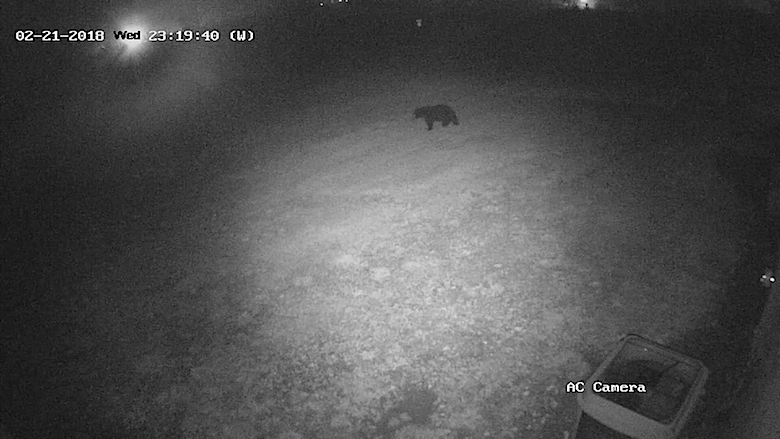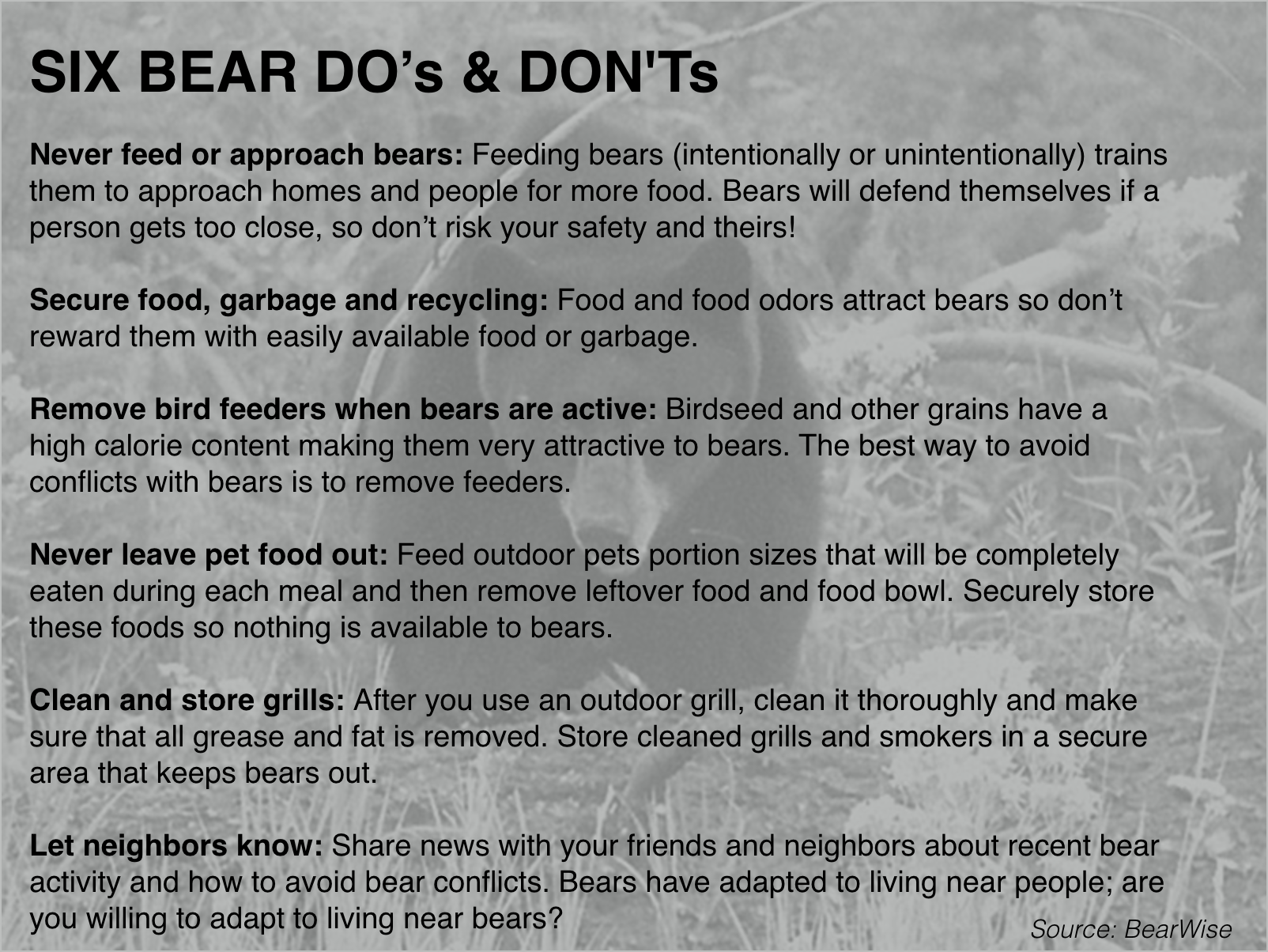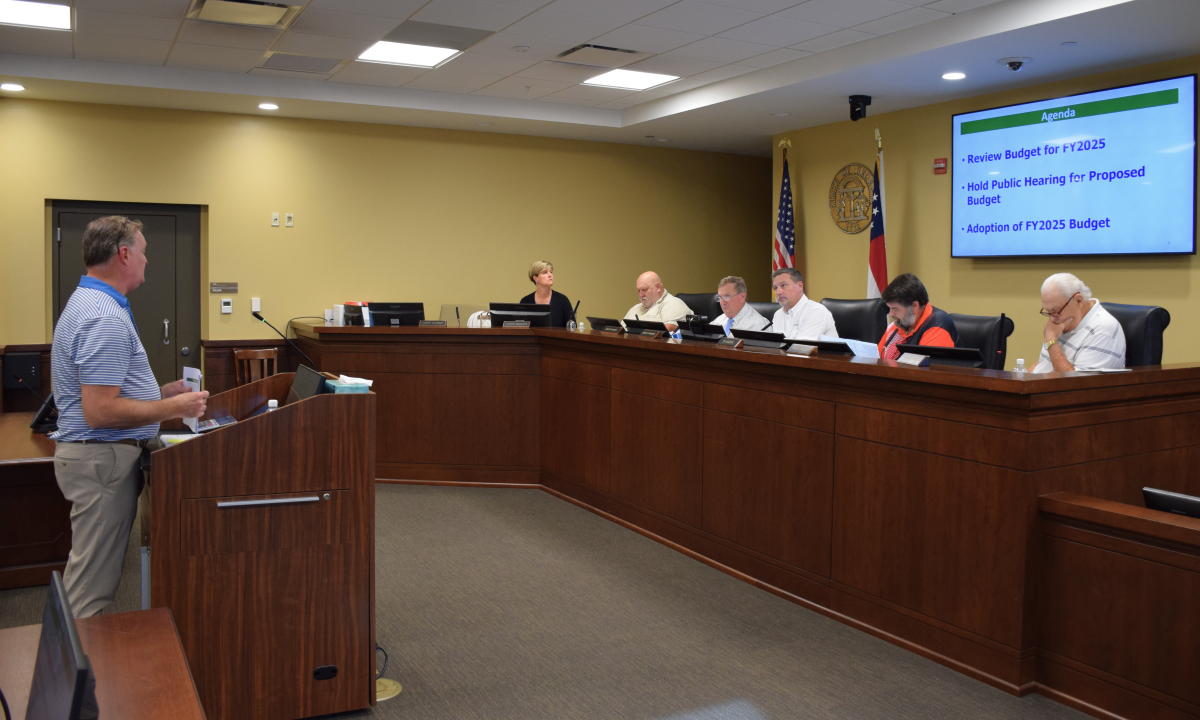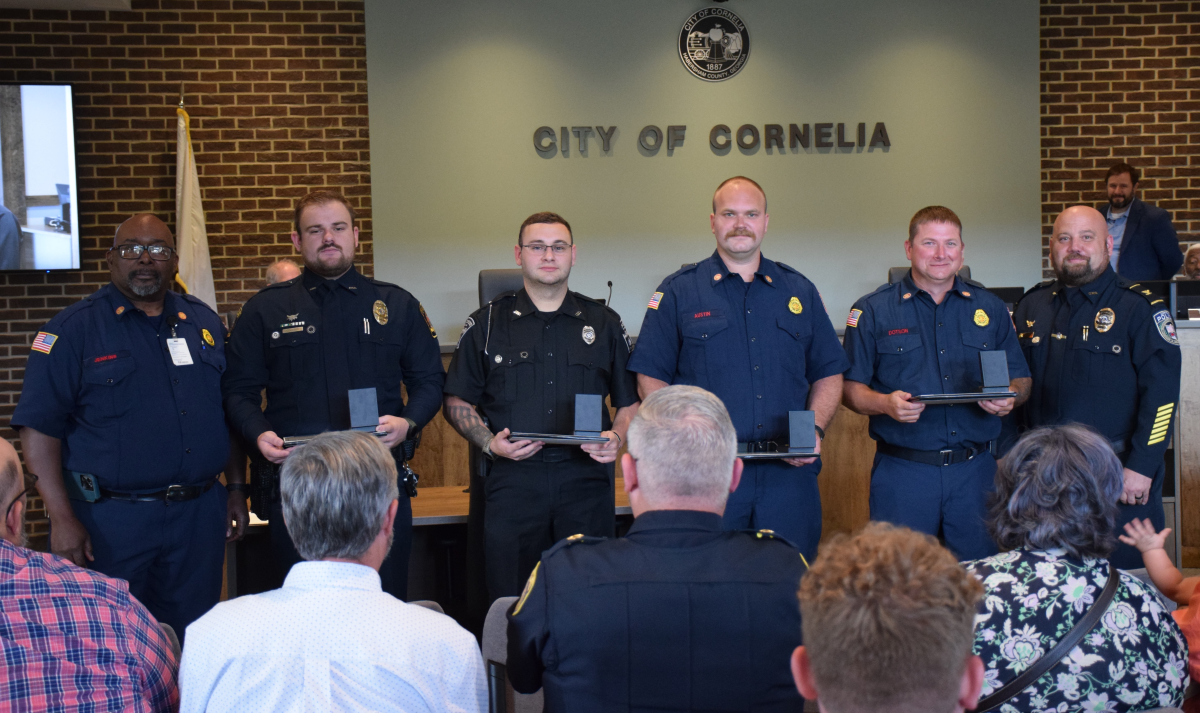
It’s not unusual to see wildlife in rural Habersham, but it is a bit out of the ordinary to see a black bear in your yard. That’s what Barry Lipsitz saw late Wednesday night.
Lipsitz lives at the intersection of Old Cleveland Road and Old Athens Highway in Cornelia. His house sits across the street from Green Mountain Village – an apartment community on the outskirts of town.
“I kept hearing noises outside so I looked and saw the bear sitting on the side of the front yard,” Lipsitz says. It was around 11 p.m. “I just couldn’t believe it at first. I thought it was two small bears, but when he stretched out I could tell he was big.”
Lipsitz watched as the bear camped out in his yard. “He was just laying there, just playing around, licking his paws, and eating the grass.” After about forty minutes the bear – whose late night frolicking was caught on a security camera – got up and walked away. He disappeared into a nearby field.
This time lapse video shows the bear in Lipsitz’s yard.
Unsure what to do and concerned for his neighbors, Lipsitz called 9-1-1. He says the dispatcher advised him to stay inside and politely informed him there was nothing they or the Sheriff’s Office could do. She gave him the number to the Department of Natural Resources office in Gainesville. Lipitz says, “I’m not used to this, so it’s new to me.”
Home on the range (and sometimes your backyard)
New to him but not those who regularly deal with Habersham County’s four-legged population.
“Obviously, we do live around a national forest,” says Habersham County Animal Care and Control Assistant Director Wayne Higgins. He scared off a black bear cub from behind the Aquatic Center in Clarkesville just last week. “I blew the horn and he just went on his way.”
Black bears are “all around us” says Higgins, but he adds there are parts of the county where they’re more concentrated. Places such as the Lake Russell Wildlife Management Area in Mt. Airy, Piedmont Mountain on Highway 17 near Sautee, Alec Mountain Road just north of Clarkesville, and Tallulah Gorge in Tallulah Falls.
Spring is approaching and the bears are getting active. This is the time of year they begin wandering out of their dens searching for food.
It’s also mating season.
You don’t have to live near the national forest for a bear to show up in your yard. Just ask Lipsitz. Bears don’t have territories, they have home ranges. A male black bear may roam as far as 300 square miles in search of food and a mate. Female bears stay closer to home. Their home range generally extends up to just 50 square miles, according to the regional bear advocacy and safety group BearWise.
The group says bears travel farthest when food is harder to find, especially in the early spring.
See a bear? Report it
 If you do encounter a bear, avoid it. “Go the other direction away from it. Don’t run, don’t scream, don’t holler,” advises Higgins. The point is to get away from the bear, not antagonize it. And be aware, you can’t legally just grab your gun or some other weapon and kill it. “Bear season is closed,” Higgins cautions. “If they attack you, you always have the right to protect yourself and property but you have to be able to prove the bear attacked you.”
If you do encounter a bear, avoid it. “Go the other direction away from it. Don’t run, don’t scream, don’t holler,” advises Higgins. The point is to get away from the bear, not antagonize it. And be aware, you can’t legally just grab your gun or some other weapon and kill it. “Bear season is closed,” Higgins cautions. “If they attack you, you always have the right to protect yourself and property but you have to be able to prove the bear attacked you.”
The likelihood of that happening is minimal. “I’d be more scared of a wild hog than a black bear,” says Higgins. (And yes, there are lots of wild hogs around Tallulah Falls, but that’s a story for another day).
Black bears are not as aggressive as grizzlies and they generally run away when startled. “Most of them are scared of humans,” says Higgins.
Still, don’t tempt fate.
“If you see one, definitely go back inside or get in your car, make a phone call and report it,” he urges. Bear sightings in Habersham County should be reported to DNR at 770-535-5700. Higgins says, “They track these animals and will monitor them.”
You can bet Lipsitz will be monitoring his yard and neighborhood, too.







